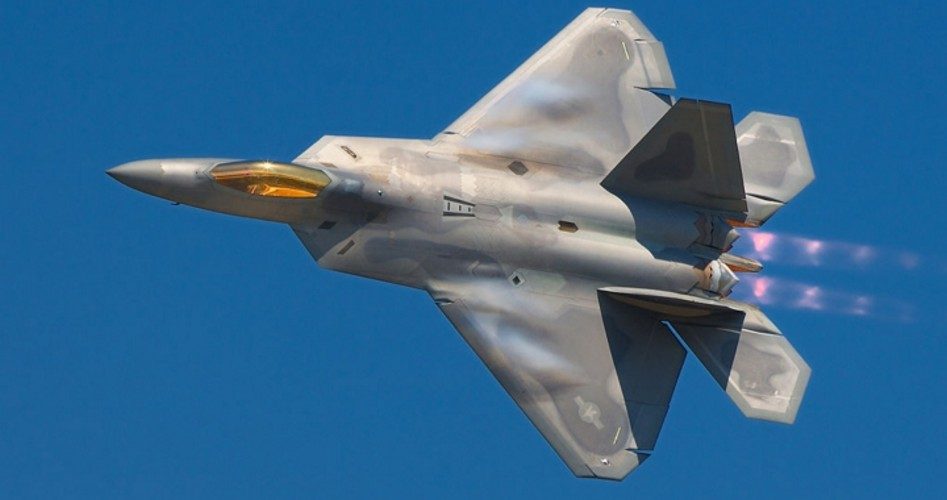
The Syrian rebels the United States has offered to arm and train for the fight against Islamic State terrorists say they need a “no-fly” zone in Syria to protect them from the air force of Syrian President Bashar al-Assad.
Hadi al-Bahra, the president of the Syrian opposition, said in an interview with the New York Times that protection from Assad’s aerial attacks would be needed once the trained troops take to the battlefield. “Our forces have to be either equipped with an air-defense system like Manpads or a no-fly zone has to be imposed in these areas,” he said, referring to a type of shoulder-fired missile launcher. “We cannot throw our people to fight where they are a target of airstrikes by the regime.”
The establishment of a no-fly zone would, however, pit U.S. pilots against Assad’s air force, something the United States would want to avoid while continuing to bomb bases of the Islamic State in both Syria and Iraq. The Damascus government has apparently given the United States a free pass thus far for aerial attacks on Islamic State targets in Syria. The Syrian news agency in reporting the attacks made no mention of violations of the nation’s sovereignty, an issue raised by the Syrian government when President Obama began talking about extending the air campaign in Iran into Syria to hit Islamic State targets there as well. Lt. General William C. Mayville, Jr., director of operations with the Joint Chiefs of Staff, said Syria’s air defenses were “passive” during the strikes the United States and some of its coalition partners launched against the Sunni militants on Monday.
Five Sunni Arab nations — Saudi Arabia, the United Arab Emirates, Bahrain, Jordan, and Qatar — participated in or supported the attacks in Syria, U.S. officials said. Jordan said that “a number of Royal Jordanian Air Force fighters destroyed” several targets but did not specify where; the Emirati Ministry of Foreign Affairs said its air force launched its first strikes against the Islamic State on Monday evening. Saudi Arabia and Bahrain also joined in the aerial assault, while Qatar played a “supporting” role, officials said.
But the majority of strikes were carried out by American warplanes and cruise missiles, with the aim of hindering the ability of the Islamic State to cross the border into Iraq and attack Iraqi forces. A senior military official said that during the three waves of strikes, the United States and its Arab allies dropped almost as many bombs in one night as the United States had used during weeks of operations against the Islamic State in Iraq, the Times reported. Along with Islamic State compounds, barracks, and vehicles in northern Syria, targets included an Islamic finance center in Raqqa, destroying electronic and communications equipment on the roof while leaving the rest of the building intact, officials said. American F-22 fighters hit a portion of an Islamic State command and control building that the Sunni militants were using for communications, storing weapons, and holding meetings, while again leaving the rest of the buildings intact, officials said.
While waging what Mayville called a “credible and sustainable” campaign to destroy the Islamic State, U.S. officials said the precision strikes were designed to limit civilian casualties and avoid giving the militants propaganda ammunition they might use to accuse the United States and its coalition partners of killing civilians. Yet that charge has been made by a leader of the rebel forces the United States is supporting.
“People see there was a massacre in which innocent people were killed,” Col Hassan Hamadi, a defector from the Syrian army who now leads a legion of about 6,400 rebels in the Free Syrian Army, told the McClatchy news service, referring to a missile that struck a temporary housing facility for displaced civilians. There were conflicting reports as to whether any leaders of the Nusra Front, a group allied with the Islamic State, were in the building at the time.
“Nusra is still popular in Syria,” Hamadi told the McClatchy news service. “And now Nusra is playing on the emotions of the Syrian people,” he said. “They are accusing us of being traitors. And the majority of the Syrian people are speaking in the same tone.”
The monetary cost to the United States of the campaign against the Islamic State is estimated at $1.5 billion per month in a war that President Obama has said is likely to last years. Coalition partners in the region who have a greater stake in the outcome than the United States are not expected to contribute nearly as much.
Turkey, which shares a border with Syria, declined to play a significant role while the militants held 49 Turkish hostages. They have since been released, and President Recep Tayyip Erdogan said Tuesday that Turkey would assist the effort in some way.
“We will give the necessary support to the operation; the support could be military or logistics,” Erdogan said, according to the Turkish broadcaster NTV.
“Clearly, Turkey had an initial challenge with respect to its hostages,” Secretary of State John Kerry said this week at a meeting on countering terrorist threats. Now that has been resolved, he added, “Turkey is ready to conduct additional efforts along with the rest of us in order to guarantee success.”
Photo of U.S. Air Force F-22 Raptor



